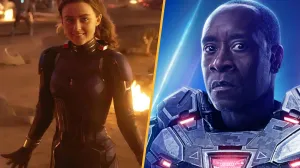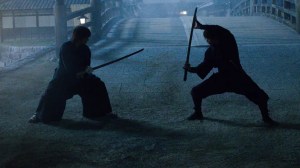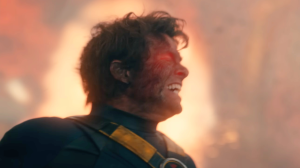For the better part of the past two months, the Marvel Cinematic Universe has reentered our lives thanks to WandaVision. The series — which, due to various factors tied to last year’s COVID-19 production shutdowns — became the first new MCU installment in a year-and-a-half, as well as the franchise’s first of many Disney+ exclusive television series. Those factors, as well as the series’ story being told across weekly installments as opposed to one uninterrupted movie, have definitely had a unique impact on the way WandaVision has been received — including the opportunity for a lot more speculation amongst the series’ viewers. Anyone who has even casually glanced at the Internet in the weeks since WandaVision first premiered has probably been bombarded with some of those fan theories, which have picked apart nearly every aspect of the series for potential future storylines or plot twists. While that amount of fan speculation is a testament to how well-executed WandaVision‘s narrative has been, it’s also become a curse that many viewers have placed upon the series — one that feels increasingly prominent as this week’s finale grows near.
Videos by ComicBook.com
To an extent, fan theories have surrounded WandaVision from the second it was first announced by Disney, as the Vision-inspired idyllic suburban vibes, the unexpected supporting cast, and the fact that Fox’s previously-owned Marvel characters can now enter the MCU, raised a lot of questions. When coupled with WandaVision‘s marketing, which chose to lean into its homages to decades of sitcom history as opposed to actual plot details, the opportunity to project possibilities onto the series only grew. Even before an episode had premiered, the Internet had logged dozens of theories about how the series could loosely adapt House of M or could perfectly tee up Doctor Strange in the Multiverse of Madness. The theories have only grown with each new episode, from the identities of the Westview townspeople (Who exactly is Kathryn Hahn’s Agnes? Could Dottie secretly be a member of the Squadron Supreme? Is Herb really the High Evolutionary?) to the layers of hidden meaning within the in-universe commercials, and everything in between.
The fact that WandaVision has had so much to chew over in the texts of its episodes — to the point where even the most innocuous detail or Easter egg hasn’t gone unnoticed — is absolutely worth celebrating, and hopefully signals a storytelling trend with the rest of the MCU’s Phase 4. But at some point along the way, the discourse around the series has shifted to which hail mary, jaw-dropping cameo the series could introduce, akin to Luke Skywalker’s surprise appearance in The Mandalorian‘s Season 2 finale. Some of these have been cameos that would realistically make sense within the text of the series — such Mephisto, Doctor Strange, Wonder Man, or James Spader’s Ultron. Other cameos, while still possible within the confines of the MCU, would have required a lot of additional narrative justification — such as every theory wondering which other Avenger could pop up. (It’s also worth acknowledging that the majority of these particular fan theories have revolved around male characters swooping in on what is, by all intents and purposes, a female-led story. But that’s a conversation for another day.) Nowhere has this kind of theory been more apparent than with the “aerospace engineer” line dropped by Monica Rambeau midway through the season, which somehow has snowballed into fans insisting that Reed Richards (ideally played by John Krasinski) needs to show up in the series. Putting aside the facts that Marvel’s Fantastic Four reboot is still years away, Reed canonically has many more titles beyond “aerospace engineer”, and he has very little to do with SWORD in the comics, the idea of WandaVision serving as his first appearance in the MCU opens up a huge can of worms. Sure, WandaVision and Fantastic Four could still tangentially connect with the Agatha Harkness of it all, but there isn’t a clear justification in the narrative for Reed to be involved with the conflict of the series, at least not in a way that would strengthen his, Wanda’s, or Monica’s storyline. If anything, it would just inch fans closer to being able to come up with dozens of new Fantastic Four theories off of crumbs of canon, starting the cycle all over again.
And honestly, the series’ “Luke Skywalker cameo” arguably already happened in Episode 5 with the debut of Evan Peters’ Quicksilver — a detail that was briefly reported on months before the series premiered, but that had an emotional impact and in-canon ramifications that still took even the most diehard fans by surprise. Outside of that, the series has already delivered on so many moments that fans wanted (Monica getting her powers, the birth of Tommy and Billy Maximoff, the all-white Vision Quest Vision, and the full embracing of Wanda’s Scarlet Witch superhero name and costume), and even some that they didn’t know they wanted (a look at the first moments following Avengers: Endgame‘s “blip”, a meaningful examination of the grief that Wanda has been feeling on the periphery of the MCU, and the “Agatha All Along” song).
WandaVision is a lot of things — a love letter to the past seven decades of sitcoms, a proper showcase for one of the weirdest and most beloved romantic couples in comics, and a portrait of female grief and perseverance that has yet to be seen in mainstream superhero media. What it isn’t, however, is a dumping ground for every potential storyline or “surprise” character cameo you want to see in the MCU — cameos that, by and large, would undermine or overshadow the story at the center of the series. Whether or not the WandaVision finale is well-executed and satisfying shouldn’t be tied to if it ticks a list of arbitrary boxes, most of which only popped up as a way for fans to grapple with the fact that they didn’t have the series’ full story in one sitting. If any of the many fan theories surrounding WandaVision do end up coming true in the finale, great — but the series has already proved itself on so many levels beyond that. A comic book adaptation can still deliver an impactful, entertaining, buzzworthy story without having to deliver on every little thing fans ask of it. If WandaVision has to be the thing that teaches people that, then so be it.
New episodes of WandaVision debut every Friday exclusively on Disney+. If you haven’t signed up for the service yet, you can try it out here.
Note: If you purchase one of the awesome, independently chosen products featured here, we may earn a small commission from the retailer. Thank you for your support.








